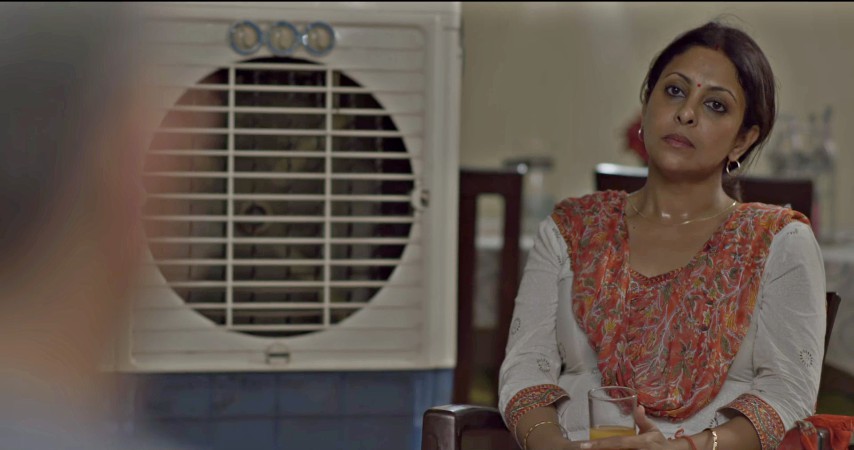It’s a hot summer evening. Men lounge in the drawing room, nursing their drinks, cracking bawdy jokes. No one takes notice of the woman who silently serves them food, cleans up the crumbs and walks back into the kitchen. No, she is not the help but the spouse.
Neeraj Ghaywan’s short film Juice, starring Shefali Shah in the lead, takes a closer look at the gender bias set in the reality of an average Indian home. The setting is too real and repulsive in its familiarity.
Guests are at home and the men are seen in high spirits talking about their day and engaging in some shop talk. While Manju (Shah) cleans and adds more water in the air cooler, one man is seen ranting about his new boss, a woman, who has purportedly made the workplace more systematic.
“What are you more annoyed with, Mr Singh? Email or female?” asks one of the men which elicits guffaws from the rest.
Inside the kitchen, the wives of the men await, help around with cooking and cleaning. It’s visibly hot, a rickety table fan is installed but offers no consolation to the women who are slogging it out. While the men debate on the merits of Hillary Clinton and Donald Trump enjoying the breeze of the air cooler, the conversation in the kitchen is more in the present. The women talk about childbirth, finances, career, marriage, education of the children amid the sounds of the sputtering of spices and sizzling woks. Manju listens to it all in silence.
Recommended
To anybody watching, it’s a scene straight out of any Indian middle class household. Women are straddled with “duties” that society has ingrained in them – staying in the kitchen, serving their men, and taking care of the children, while the men get to be men. The film conveys in the minutest details how patriarchy and systemic sexism have become the norm. Even the children are not spared of the yawning gender divide – the boys get to play videogames while the girl is reprimanded, dragged out and made to serve food.
But Manju reaches a breaking point. Fed up with her husband sitting around while she toils, she halts her cooking, reaches out for a glass and pours herself some juice. Dragging a chair, she seats herself in front of the air cooler, in front of all the men. Laughter immediately stops, the other ladies watch her closely from behind the metaphorical curtains of the kitchen. And then men? They aren’t sure of what to make of it. Is a woman allowed to be there? Should she be here, outside her “domain”?
Manju, with the glass in her hand, her teary eyes in deviance, silently daring her husband to protest. He’s visibly furious at first, but soon enough he isn’t able to look at her.
If last week’s Tumhari Sulu was a story along similar lines but with a more happy ending, Juice doesn’t assure a similar outcome. The ending, left ambiguous, leaves one wondering if Manju, after her break, goes back to the kitchen to serve the men their food or does her husband finally see her as just another person being taken for granted. If anything, the ending hits one hard mostly because it’s a way too familiar scenario but there’s little that we do to salvage it.



